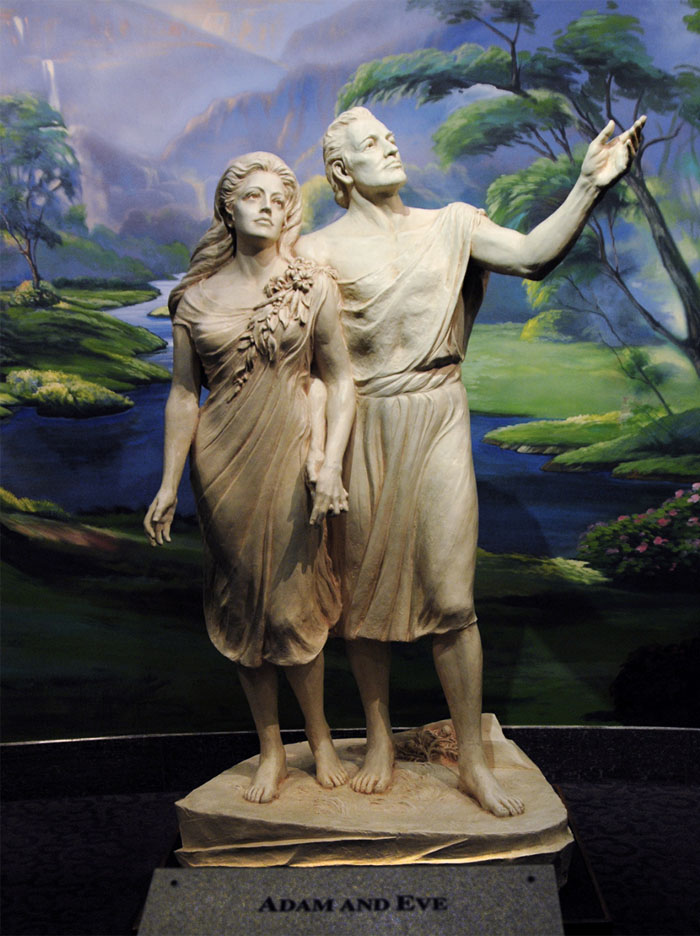
(Photo by Dion Ogust)
It’s a tricky business, dealing with events that happen at the same time. Are they linked, or just coincidental? Case in point: climate change.
Humans have raised the atmosphere’s carbon dioxide to 400 parts per million: a higher level than anytime in at least the past 800,000 years. Some data suggest that our planet last saw the current level 15 million years ago. So, no question: We’re living in an unusual situation.
Now let’s add some other unusual event – the recent severe California drought, say. Or the current odd rains in that same state, which caused widespread flooding. Are they linked to the carbon?
Answering such questions necessitates the use of statistics, which (as we all know) are often misused, either deliberately or through ineptitude. Then all sorts of mischief bubbles up. For example, males are five times more likely to be hit by lightning than females. Is it because Mother Nature favors her own sex, as she does with infant survival rates? No, it’s simply because men and boys are more often out fishing or playing golf in open areas.
The most basic error in statistics is assigning probability after an event has occurred. This mistake is seen frequently in pseudoscientific presentations, and has been deliberately utilized by demagogues throughout history.
To illustrate how this works, assume that you’ve just watched three women with red hats cross a street just as the town’s siren conducts its daily noontime test. You could maintain that the odds of witnessing this exact sequence are millions to one against. Did you therefore see something very improbable?
Not at all. Once an event has happened, its chance of occurring becomes 100 percent. It is no longer unlikely in the least. Only a prediction made in advance can assign meaningful odds.
Unusual weather is the most common area where this error pops up, since odd periods of heat, cold, snow or rain bring out the “expert” in all of us. These days, unusual conditions are reflexively seen as signs that the climate’s changing. Trained researchers, however, find it much more difficult to tell whether anything odd has actually occurred. The problem with weather is that the unusual is normal.
A good analogy involves flipping a coin twice. Getting two heads is unlikely, and so is two tails, or first a head then a tail, or the other way around. But while a particular outcome is improbable, the odds are 100 percent that one of them must occur. Thus, an improbable event must happen every time a coin falls to the floor twice.
So it’s reasonable that we’ll often find ourselves in the midst of some unusual condition. Floods, drought, unusual heat or cold are a daily certainty somewhere in the world.
The interesting thing about this way of thinking is that we then live in a universe where everything’s fascinating, but nothing’s completely surprising.

Well not exactly. I get the point but to express it thusly:”So it’s reasonable to expect that we’ll often find ourselves in the midst of some unusual condition” is incorrect. [By definition, we cannot “often” find ourselves in the midst of some unusual condition, because by definition if we do in fact “often” find ourselves in the midst of a condition, it cannot be, therefore, “unusual”. The word “anamoly” may be better employed to express the thought here. Or the simple fact that weather is a seriously complex thing impacted by multiple variable factors many of which remain highly unpredictable] What is not in serious dispute is that the “Greenhouse Effect”, ie, carbon dioxide in the atmosphere trapping radiational heat from the sun therein and resulting in warmer planetary temperature surface is seen the model of our closest planetary neighbor, Venus, and its atmosphere–and generally proven to be making an impact upon the general temperature trends over long periods of time on our planet throughout same. Thus, there most certainly is an association between this and climate change as a general trend;in terms of specific events, this association is of course less clear and less clarity is available on this particular association.
I am sure that is what Bob meant to say here but since he’s a good guy, I’ll refrain from excessive criticism of him for goofing up the expressions of his thoughts here a bit.